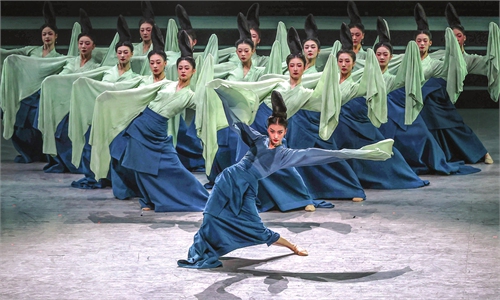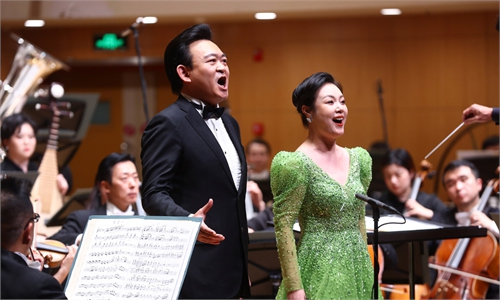ARTS / CULTURE & LEISURE
Research Center dedicated to Western Zhou Dynasty Yan culture established to enhance civilization origin project
Research Center for Archaeology of Yan Culture has been officially established in Beijing on Sunday. Photo: Courtesy of Research Center for Archaeology of Yan Culture
The Research Center for Archaeology of Yan Culture was officially established in Beijing on Sunday. Experts highlighted the importance of researching Yan culture in supplementing China's national project to trace the origins of Chinese civilization.
Originating in the Western Zhou Dynasty (1046BC-771BC), Yan culture has endured for over 3,000 years, evolving into a regional culture known for its generosity, chivalry and coexistence. The Yan cultural sphere primarily encompasses the Beijing-Tianjin-Hebei region, with significant cultural exchanges and integration with the Loess Plateau and Mongolian Plateau.
Archaeological findings at sites like the Liulihe site in Beijing, Yandu site in North China's Hebei Province, and Zhangjiayuan site in Tianjin confirm the complexity and unity of Yan culture across different times and spaces.
At the opening ceremony, Guan Qiang, deputy head of the National Cultural Heritage Administration, acknowledged the archaeological work in the Beijing-Tianjin-Hebei region, urging the region to adopt a "mega-archaeology" approach, uphold academic leadership, strengthen foundational work, enhance open collaboration, and express earnest expectations for archaeological data compilation, standardized safety management, and public outreach.
Lei Xingshan, director of the Research Center for Archaeology of Yan Culture, told the Global Times that the center's establishment will propel research into the regional forms of Yan culture. For instance, the use of cutting-edge technology once again confirmed the start of the Western Zhou as 1046 BC.
"Chinese culture is diverse yet integrated. Yan culture, representative of the Western Zhou period, holds significant importance in supplementing efforts to trace the origins of Chinese civilization," he said, going on to further emphasize that the assistance of advanced technology and interdisciplinary research has significantly increased the efficiency of current archaeological work. Future endeavors will continue to adhere to the principles of interdisciplinary research, delving deeper into the study of Yan culture.
After the ceremony, forums themed on "Cultural Continuity" were held with the aim of sharing the latest insights into archaeological discoveries and research in the Beijing-Tianjin-Hebei region. They sought to broaden collaborative directions, innovate cooperation methods, and jointly interpret the historical and cultural origins of the three regions.
Cheng Jianhua, deputy secretary-general of the Beijing Municipal Government, expressed that the establishment of the research center and the convening of the Beijing-Tianjin-Hebei archaeological forum will further advance the collaborative development of historical archaeological research and cultural undertakings in the three regions. Together, they will promote cultural heritage protection, deepen humanistic exchanges, facilitate cultural dissemination, and collectively embark on the new journey of building a modern civilization for the Chinese nation.




